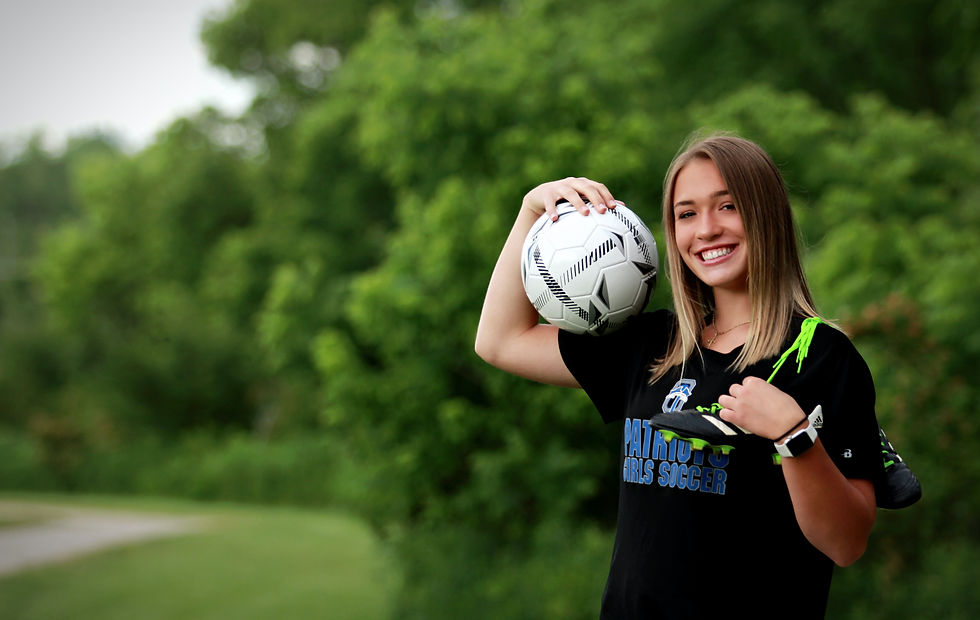Interpersonal communication is the process of exchanging thoughts, ideas, feelings, and emotions between two or more people. These exchanges can be nonverbal or they can be verbal interactions. We can usually get a "vibe", or some type of indicator that enables us to make some sort of judgement when first interacting with people during our everyday lives. Does the person make us feel comfortable and relaxed? Do we feel a sense of urgency or seriousness? Do we get a notion that perhaps this person is disinterested in what we have to say, or doesn't contribute to a conversation that we feel is important? All of these every day judgements point us towards our ultimate perception of how we feel about an individual. Whether or not we like the word judgement(s), we must understand that this does happen and that we are usually judged (positively or negatively), within the first five minutes of our interaction with someone.
When we discuss college soccer recruitment, we must remember that the process resembles that of a job interview. Your athlete is not only being judged on their athletic ability, but also academics including transcripts, interests and hobbies, past employment or volunteer work, social media activity, overall character-- and let us not forget, our verbal and non verbal interactions. This is not limited to just how we act on a soccer field. A college coach is going to pay close attention to the emails that they may receive from an athlete (spelling, grammar, sentence structure, overall content), phone call etiquette (is the athlete engaging on the phone and how is the athlete speaking? What language is being used and is it in the proper tense of the intended words? Is the athlete choosing to use improper words; for example, "gonna" instead of "going to", or "cuz" instead of "because"?) A coach will use the opportunity of speaking by phone to an athlete as a means of gaging the level of interest that this player may have in their program, to see the way the athlete handles the call; does the athlete ask questions, is the athlete respectful, does the athlete give insight as to who they are as a person? All valuable information for the college coach as he or she tries to determine who will win the coveted roster spots. There are many times that I have heard from a coach that a particular athlete did not interview well on the phone, or left the coach with vague and indecisive answers. You don't want this to be the case for your athlete.
Below, please see my pointers for athlete's engaging with college coaches.
Before speaking on the phone with a coach, be sure to:
Have a list of questions ready. Perhaps you would like to know how many players on the team are enrolled in your intended major? Or perhaps you would like to ask about the team's practice schedule? Whatever it might be, be sure to have at least five engaging questions to ask the coach.
Practice asking your questions or working through your phone call with a parent or friend. Get the nerves out.
Remember that the coach cannot see you on the phone! Do not shake your head yes or no to answer a question. They need to hear you say "yes" or "no".
Be prepared to talk about yourself. The coach wants to learn about you. They need to feel comfortable that you are a good fit for their program. Sometimes it is helpful to write out some positive points before your call. This way, you can refer back to it if you get nervous and forget. Some possibilities could be that you talk about yourself as a player, discuss a club that you belong to at school, what kind of student you are, or list other sports that you play. Remember, a coach is paying close attention to how an athlete answers, and how interactive, engaging, and personable they may be. Always think of it as a job interview! The coach will go with an individual that they are sure will represent their program in a positive light.
When interacting with a coach face to face, be sure to:
Look presentable. What clothes are you wearing and what is your overall appearance? I do realize the answer to this question changes if you are meeting a coach on campus or if you are coming off of the playing field. Either way, ask yourself that question!
Make eye contact and try not to fidget or move around nervously. We need to be confident.
What are my non verbal interactions indicating? Am I standing with my arms crossed or do I appear to be relaxed and comfortable?
Ask the coach questions about him/herself. Examples could be inquiring about their weekend or family.
A coach will always pick the candidate that they are the most comfortable with; even if you are not the better athlete! Team chemistry, culture, and mindset are more important than we think.
For more information on the college soccer recruitment process, please visit: https://www.academysoccerconsulting.com/the-essential-guide-to-college-socc


Comentarios